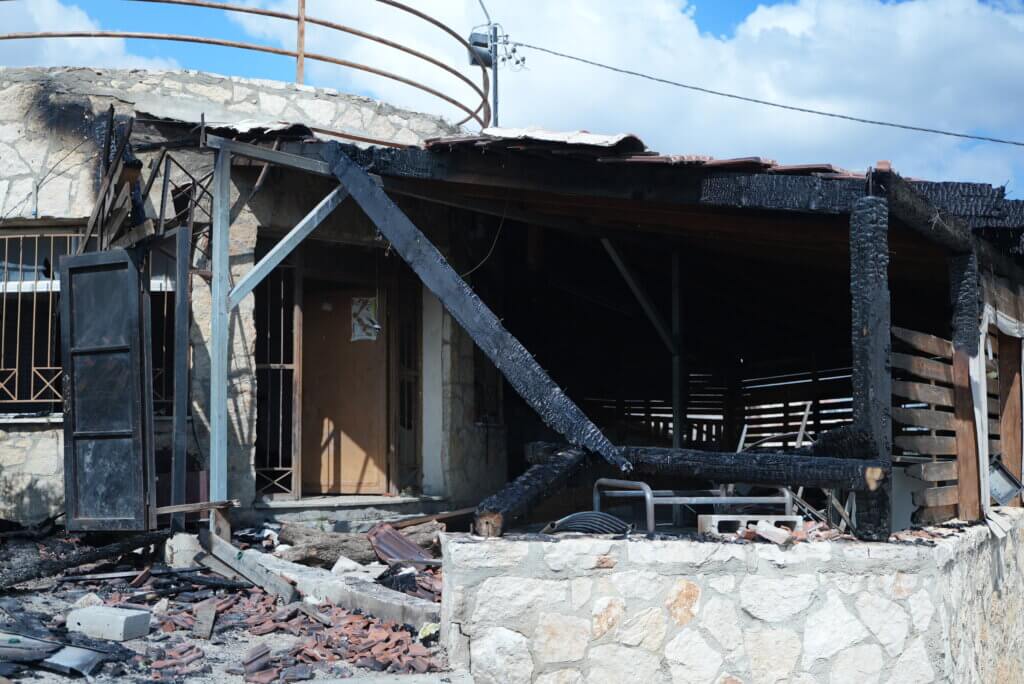OKINAWA
Blood tests detect high levels of PFOS
in residents near U.S. bases
By MIKA KUNIYOSHI /Staff Writer
October 16, 2022

Residents who live near U.S. military bases in Okinawa Prefecture announce the results of a survey about perfluorooctane sulfonic acid (PFOS) in blood samples at the prefectural government office on Oct. 15. They called on the central and prefectural governments to carry out a detailed investigation. (Mika Kuniyoshi)
High levels of a suspected carcinogen were found in blood samples of residents living near U.S. military bases in Okinawa Prefecture, triggering calls for authorities to conduct inspections of U.S. facilities to trace the cause of the problem.
A civic group on Oct. 15 released test results of samples collected from 387 residents in six municipalities. Levels of perfluorooctane sulfonic acid (PFOS), the chemical compound in question, were 1.5 to 3 times the national average.
Extremely high levels of PFOS were detected in rivers near the U.S. facilities. It was the first extensive survey to try to gauge the impact of PFOS contamination on humans living in the areas.
The group urged the central and prefectural governments to investigate possible health damage among residents and identify the source of the contamination.
It asked Koji Harada, an associate professor of health and environmental sciences at Kyoto University, to help analyze the survey results.
“Although it cannot be immediately determined whether (the compound) poses a health risk, high levels were detected. The results indicate the need for an extensive and detailed investigation,” Harada said.
Efforts to gain on-site access to U.S. military facilities believed to be the source of the contamination have proved fruitless.
Under the terms of the Japan-U.S. Status of Forces Agreement, consent must be given by the U.S. side, but none has been forthcoming.
Blood samples were collected in seven areas in Kadena, Chatan and Ginowan and three other municipalities from June to July this year.
The areas receive their water from purification plants that draw water from rivers around the U.S. bases.
Blood samples were taken from people between the ages of 18 and 95.
The group said average levels of PFOS in the samples from the seven areas ranged from 5.8 to 12.2 nanograms per milliliter.
This is 1.5 to 3 times higher than the national average of 3.9 nanograms in a survey of 119 people conducted by the Environmental Ministry in 2021.
Japan has no PFOS standard to determine if there is a health risk based on levels of the compound in the blood.
But Harada noted that Germany regards 20 nanograms per milliliter of PFOS in blood as a health risk.
Of the 387 people, 27 exceeded this level.
“More than 300 people cooperated with the survey because they are anxious about it,” said Yoshiyasu Iha, 80, co-chairman of the civic group.
“We will request the central and prefectural governments to conduct a detailed investigation in the U.S. bases,” he added. “We are seeking to clarify the source of the contamination and take proper measures.”



.jpg)






